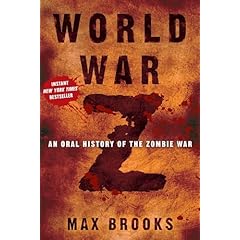Waiting for Godot to end
Saturday, November 18th, 2006
At this point, having seen probably 10 productions of “Waiting for Godot,” having read the play several times, thought about it, weighed the various merits of differing performances, and having gone so far as to give my son the middle name Beckett, I think I’m qualified to discourse on the play.
The acclaimed Gate Theatre production currently at UCLA Live! is no good.
I say this with no glee, mirrored only by my absence in glee seeing it.
Although the play is many things, one thing it is not or should not be is ponderous. But that’s what we have here. In fact, here’s how ponderous: It started around 8:10, and wrapped up just shy of 11 p.m., with a 20-minute intermission. Given that Act Two was 55 minutes (I clocked it), that puts Act One at about an hour and a half. Tooooo… slowwww….
My companion, the fiercely smart playwright and performer Trey Nichols, said that it was lacking in existential dread. Absolutely true. It was also lacking in comic rhythm. Beckett modeled the characters of Gogo and Didi after Laurel and Hardy; while I don’t expect Laurel and Hardy, I expect the comic spirit necessary to the parts. I also expect something to be at stake. Several years ago at The Matrix theatre in Hollywood, the late David Dukes, in addition to being a wonderful clown alongside co-star Robin Gammell, closed Act Two with a wrenching depiction of a man desperate to understand his place in the universe. The current Didi, played by Barry McGovern, seemed more like a man learning he might have to wait for the next bus.
Whom do I fault? Oddly enough, the memory of Samuel Beckett. Evidently his determination of how this play must be performed has been cast in stone at the Gate Theatre and with this director and at least two of the actors, all of whom he had personally worked with. This situation sounded hauntingly familiar, so when I got home I dug out my edition of Kenneth Tynan’s Letters , and there it was. (At the time, Tynan was the literary manager of the National Theatre.)
31 March 1964
To George Devine, copies to Laurence Olivier and William Gaskill, The Naitonal Theatre
Dear George:
Forgive me for writing, but I feel I must try to explain more clearly to you and Larry what is worrying me about “Play.” I wouldn’t do so if I didn’t feel that many of my qualms were shared by others.
To recap: before Sam B[eckett] arrived at rehearsals, “Play” was recognizably the work we all liked and were eager to do. The delivery of the lines was (rightly) puppet-like and mechanical, but not wholly dehumanized and stripped of all emphasis and inflections. On the strength of last weekend, it seems that Beckett’s advice on the production has changed all that — the lines are chanted in a breakneck monotone with no inflections, and I’m not alone in fearing that many of them will be simply inaudible. I suspect that Beckett is trying to treat English as if it were French — where that kind of rapid-fire monotony is customary.
The point is that we are not putting on “Play” to satisfy Beckett alone. It may not matter to him that lines are lost in laughs; or that essential bits of exposition are blurred; but it surely matters to us. As we know, Beckett has never sat through any of his plays in the presence of an audience: but we have to live with that audience night after night!”
Please understand me: I trust the play completely, and I trust your production of it, — up to the advent of the author. What I don’t especially trust is Beckett as co-director. If you could see your way to re-humanizing the text a little, I’ll bet that the actors and the audience will thank you — even if Beckett doesn’t!
Why have I seen “Godot” so many times? Because done well, it is an astonishing experience. The first time I saw it was as an undergrad, in a college production featuring my friend Joe Stafford as an imperious Pozzo. That was 20 years ago, but the performance has stuck with me — Joe embodied the comic boorishness of the role. And at the end, when the moon has risen and Godot has yet again not come, the lights drew down and pinlights of white emerged in the flies, signifying stars, and for a moment I lost my place in the universe. That’s an effect I’ve been swiping ever since, as with “Two Men Losing Their Minds” at Moving Arts in 2000.
Done right, with verve and with stakes, featuring characters who yearn for answers, “Waiting for Godot” is a transformational experience. Performed as a museum piece pregnant with significance, it’s a crashing bore.
 The premise of the biography
The premise of the biography 



